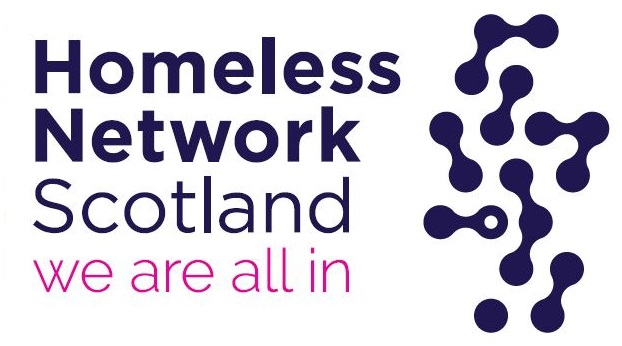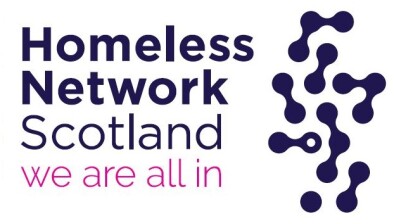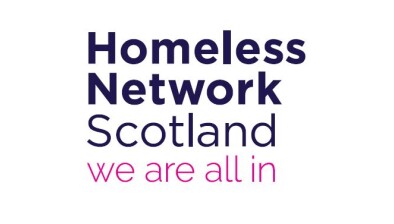Homeless Network Scotland: Housing Bill set to cement homelessness prevention in law

Homeless Network Scotland provides its own commentary on this week’s passing of the Housing (Scotland) Bill.
Late on Tuesday night, MSPs passed the Housing (Scotland) Bill. This is a landmark moment for the many organisations that have been working for years to prevent homelessness – and more importantly, for people who have experienced or are at risk of homelessness.
The Bill’s prevention measures in Part 5, if resourced and delivered properly, will create a robust legal framework for preventing homelessness. Along with increasing housing supply, prevention is the key to bringing about positive change.
And we need that change, fast. Homelessness and rough sleeping are still rising, and record numbers of children are living in temporary accommodation, as shown in the recent homelessness statistics for 2024/25.
We have the legislation. Now we need to make sure it is implemented and resourced properly, otherwise people will continue to suffer harm and years of hard work by everyone involved in this process will count for nothing.
Why is this important?
Homelessness causes well documented and wide-ranging harm to individuals, communities and ultimately society. It’s about the mum and her kids stuck in temporary accommodation with lives on hold – often far from support networks, school and friends.
It’s about the people stuck in dire hotel and B&B rooms which no one would choose to live in and which cost councils staggering sums – in one area surpassing £100 million a year.
And it’s about the people who experience the deepest disadvantage through factors including poverty, discrimination and UK immigration policy – those in our communities who are most likely to sleep rough or risk other unsuitable options because of a lack of decent accommodation with access to all the support they need.
Preventing homelessness averts trauma, stigma and indignity. It makes communities safer. It reduces pressure on homelessness services by shifting the focus from crisis intervention to upstream prevention. And it reduces the significant knock-on costs homelessness brings to the door of NHS, mental health, addiction and justice services.
Ask and Act – developed through lived experience insight
The ‘Ask and Act’ proposal in Part 5 is a key part of the bill. It widens responsibility for preventing homelessness beyond homelessness services to include a range of relevant bodies including social landlords, police, health services and social security. It’s a step towards making prevention everyone’s business.
Simply, it will require frontline staff to ask someone they are working with about their housing situation and act to help prevent them becoming homeless if a risk is identified. If implemented properly, this measure will reduce the flow of people to statutory services, which in many areas are under intolerable pressure because of the housing emergency.
All in for Change – a team with direct and frontline experience of homelessness, facilitated by Homeless Network Scotland and Cyrenians – played a crucial part in developing this measure through the Prevention Review Commission, working in tandem with the cross-sector Prevention Review Group. This is a proud moment for the Change Team and follows years of dedicated hard work. And it proves once again how integral the voices of lived experience are to getting change right.
Upstream prevention and protecting lives
The bill’s measure to extend the time frame when someone is considered to be at threat of homelessness from two to six months is another vital element of the legislation, as are measures to prevent homelessness for people affected by domestic abuse, and measures to deliver support that matches the needs of people locally, a key driver of tenancy sustainment.
Scaling up Housing First for those who need it
Similarly, the bill’s measures aimed at scaling up delivery of Housing First – a social home with wraparound support – are welcome. Housing First should be the first response for people whose homelessness is made worse by mental health, trauma and addiction. But Housing First currently only meets 9% of estimated need in Scotland despite very high tenancy sustainment rates (80%-90%).
Introducing the requirement for an annual report that monitors what is being done to expand provision is important, as is ensuring that Housing First is delivered consistently in line with international Housing First principles. This will reduce harm. And as with other prevention activity, it will reduce spending on other services including health, addictions and justice.
Making a good system work – for everyone
We have the evidence-backed policies to create a housing and homelessness system that puts people and their right to housing at the centre, with a focus on securing a settled home quickly and providing all the support an individual needs to sustain their tenancy.
Making this system of Rapid Rehousing work as intended depends not only on sufficient supply of social and affordable homes, but also on creating an effective suite of prevention tools that clarifies duties and responsibilities – which this legislation has put in place.
We will continue to work collectively to ensure the prevention measures are effectively implemented, including through the £5million pilot schemes to explore scaling up what works and unearth innovative ways to prevent homelessness and keep people in tenancies.
Prevention is pivotal as it tackles homelessness at its root, stopping the spiral of crisis before it overwhelms families and individuals. We believe Tuesday night’s vote brings this day closer.
Want to find out more?
Get your free briefing on the Housing (Scotland) Bill – as passed – at Scotland’s Annual Homelessness Conference on 27 and 28 October at Perth Concert Hall. This will be useful for those working in wider sectors (‘relevant bodies’) as well as colleagues working in housing and homelessness. Conference information and booking.






